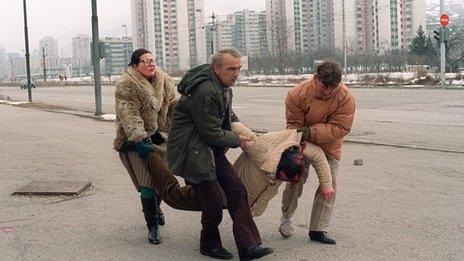Karadzic takes 'moral responsibility' for Bosnia crimes
- Published
Radovan Karadzic told the tribunal that prosecutors did not have "a single shred of hard evidence" against him
Radovan Karadzic accepted "moral responsibility" for crimes by Bosnian Serbs but denied ordering killings, in closing defence arguments at The Hague.
The wartime Bosnian Serb leader set out his case in a written brief, external before telling the UN tribunal there was not a shred of evidence against him.
He is accused of genocide and other crimes, with one charge relating to the Srebrenica massacre.
Prosecutors have called for him to be given a life sentence if convicted.
The 69-year-old political leader of the Bosnian Serbs in the 1990s was handed over to the tribunal when he was arrested in 2008 after 13 years on the run.
In all, he faces 11 charges of genocide, war crimes and crimes against humanity.
He has been given 10 hours to speak in court. The closing arguments will continue on Thursday.
The judges are expected to deliver their verdict in a year's time.
Radovan Karadzic is facing 11 charges of war crimes and crimes against humanity, as Anna Holligan reports
More than 7,500 Bosniak (Bosnian Muslim) men and boys, some as young as 12, were killed by Bosnian Serbs in the Srebrenica enclave in July 1995. The massacre is considered Europe's worst since World War Two.
The Balkan conflict emerged from the breakup of the former Yugoslavia, resulting in a bitter inter-ethnic series of wars from 1991 to 1999.
Self-assured
In a written brief that runs to more than 800 pages, Radovan Karadzic argues that he was not aware of the Srebrenica killings but takes responsibility for "any crimes committed by citizens and forces of Republika Srpska (Bosnian Serb republic)".
As he conducted his own defence on Wednesday, he seemed more like a politician outlining his policies than a war crimes suspect facing life in prison, the BBC's Anna Holligan reports.
There was no shaking or stumbling in his delivery, she says. It was the self-assured performance of man who is comfortable in the spotlight.
"It is the Serb people that stand accused," he told his judges. "I know the truth, the prosecution knows the truth, they are trying to delude the court."
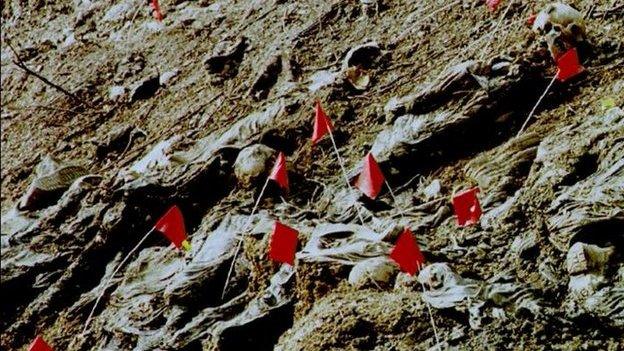
The Srebrenica massacre is considered Europe's worst since World War Two
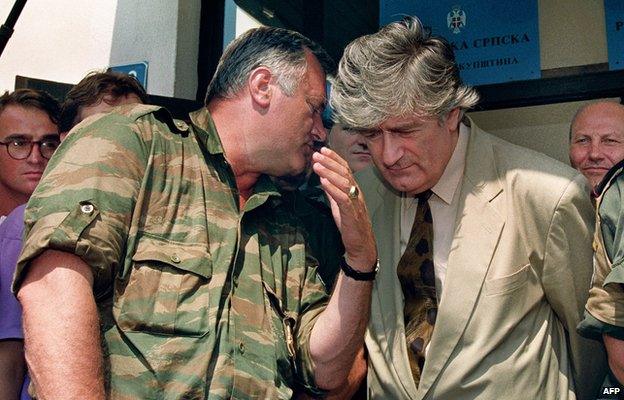
Former army chief Ratko Mladic, left, also stands accused of responsibility for the worst crimes of the Bosnia war
Mustafa Hadziibrahimovic, a Bosniak man who survived a massacre at Luka, told the BBC it was "kind of strange" to watch Mr Karadzic through the glass wall separating the court from the public gallery.
"I'm a free man and he is not," said Mr Hadziibrahimovic. "And that's the difference. And during the war... he was a free man and I was not."
UN prosecutor Alan Tieger argued this week that "the policy of ethnic cleansing" had been fully exposed as had "Dr Karadzic as its driving force".
During the 1992-1995 war, Bosniaks sought refuge in Srebrenica from the surrounding area as the Bosnian Serb army sought to expel non-Serb populations.
The UN had declared Srebrenica a "safe area" for civilians in 1993 but it fell in July 1995, after more than two years under siege.
Mr Karadzic is accused of orchestrating a campaign of ethnic cleansing together with former Bosnian Serb general Ratko Mladic.
He was arrested in 2008 in Belgrade, where he had spent years masquerading as a faith healer, heavily disguised.
Gen Mladic is being tried separately. Another key suspect, Serbian President Slobodan Milosevic, died in 2006 before the end of his trial.
More than 100,000 people died in the Bosnian war, in which atrocities were committed by all three warring sides.

Timeline of Srebrenica siege:
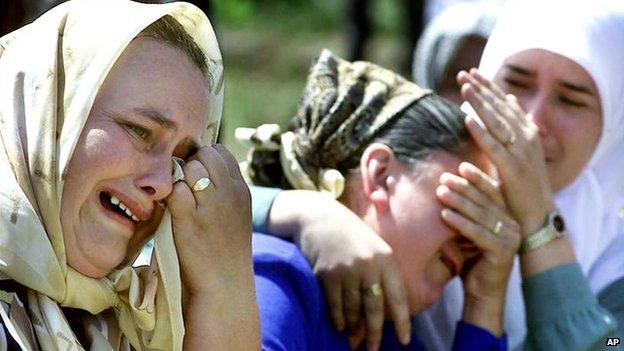
6-8 July 1995: Bosnian Serb forces start shelling Srebrenica enclave
9 July: Bosnian Serbs step up shelling; thousands of Bosnian Muslim refugees flee to Srebrenica
10 July: Dutch peacekeepers request UN air support after Bosnian Serbs shell Dutch positions. Large crowds of refugees gather around Dutch positions
11 July: More than 20,000 refugees flee to main Dutch base at Potocari. Serbs threaten to kill Dutch hostages and shell refugees after Dutch F-16 fighters bomb Serb positions. Bosnian Serb commander Ratko Mladic enters Srebrenica and delivers ultimatum that Muslims must hand over weapons
12 July: An estimated 23,000 women and children are deported to Muslim territory; men aged 12-77 taken "for interrogation" and held in trucks and warehouses
13 July: First killings of unarmed Muslims take place near village of Kravica. Peacekeepers hand over some 5,000 Muslims sheltering at Dutch base in exchange for the release of 14 Dutch peacekeepers held by Bosnian Serbs
14 July: Reports of massacres start to emerge

- Published1 October 2014
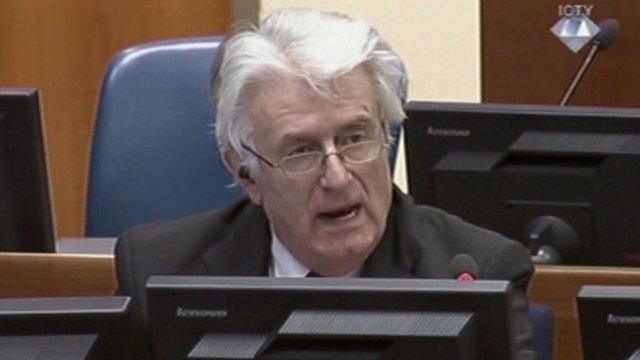
- Published24 March 2016
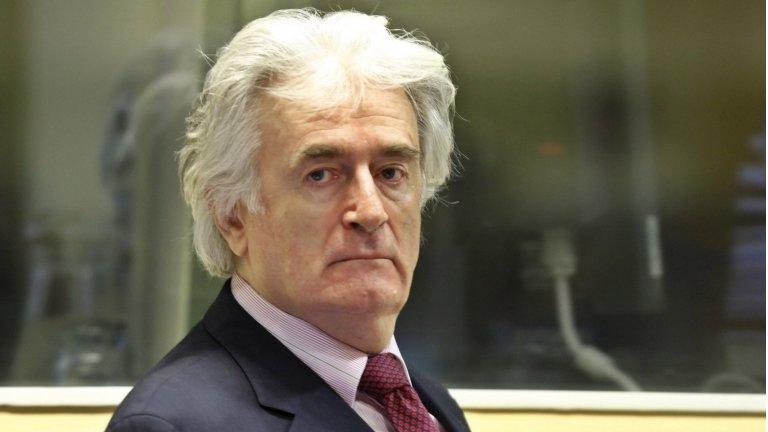
- Published16 July 2014
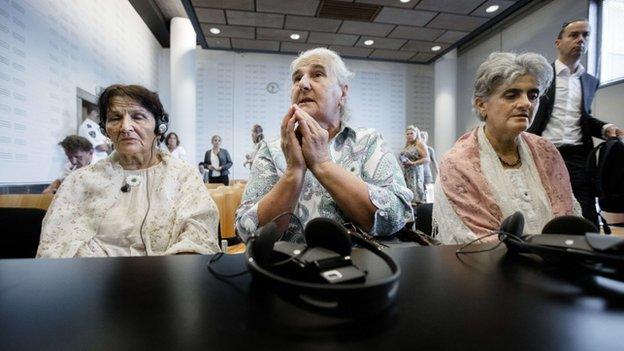
- Published6 April 2012
